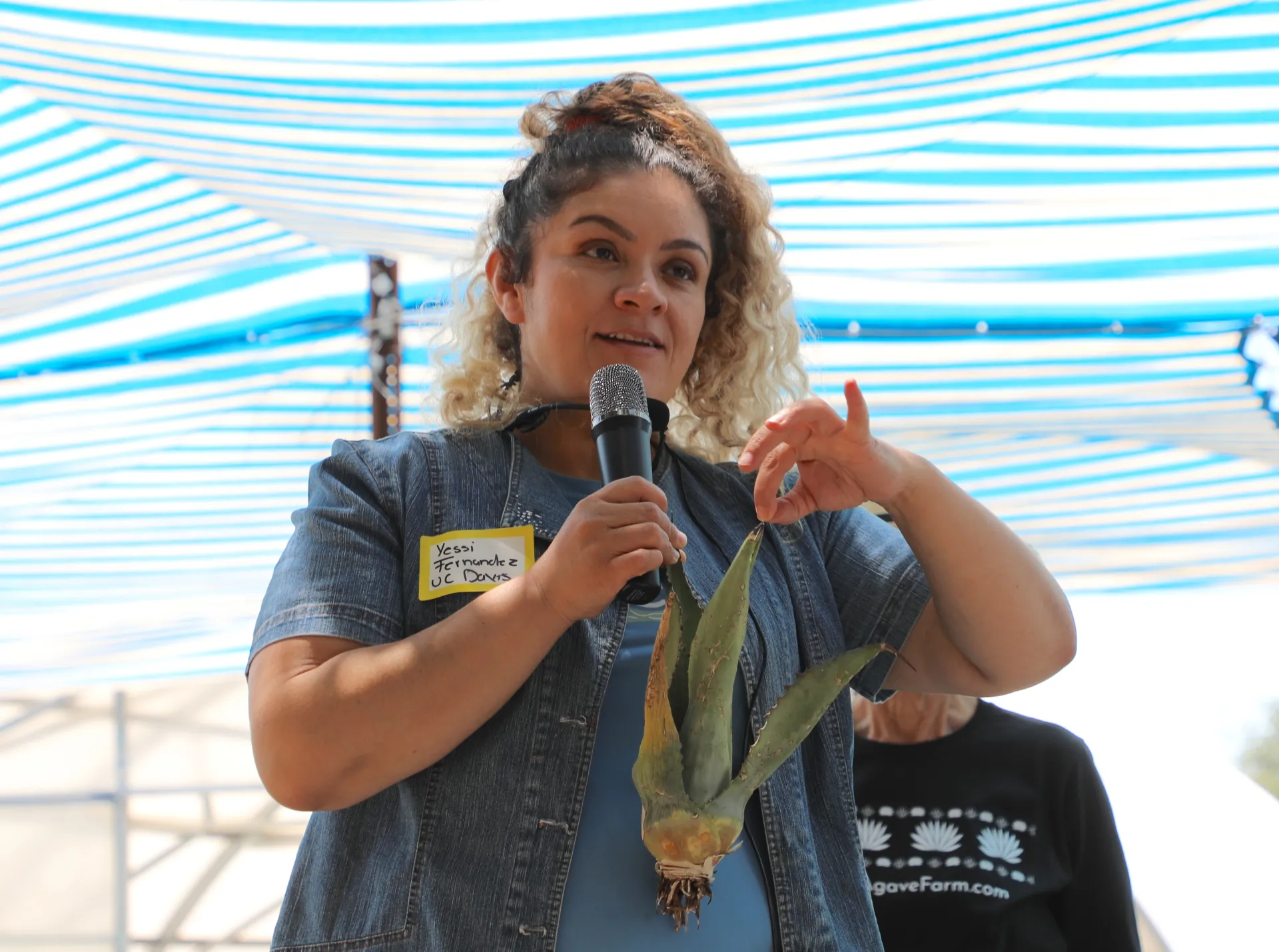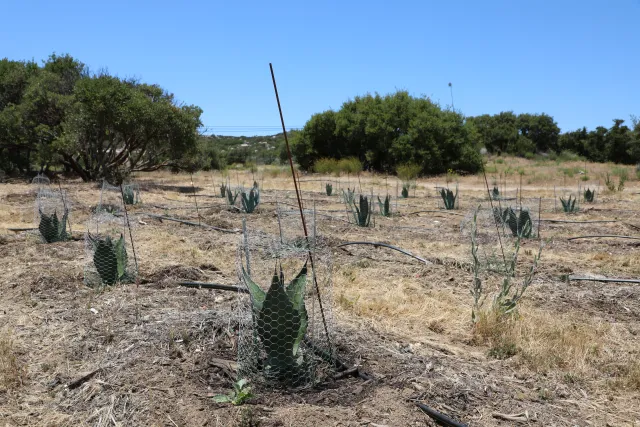Questions about growing agave? UC ANR has answers
As agave farming catches on in California, UC ANR offers free webinar series to address top concerns identified by growers

Agave may be a slow-growing plant, but the rush to farm the drought-tolerant crop in California has been rapid. Since 2023, agave acreage has quadrupled in the state, from 50 acres to over 200.
With all those new agave farms popping up, more farmers are seeking advice to best care for this hardy succulent. To meet that need, agricultural experts from UC Agriculture and Natural Resources and UC Davis surveyed English-speaking and Spanish-speaking agave growers on their top concerns. So far, they’re received over 50 responses and counting.
“With this survey, we’ve identified 30 farmers that we didn’t have on our radar before,” said Yessica Fernandez Galicia, a UC ANR and UC Davis agave researcher.
Growers' responses focused on many of the same themes: How much should you water an agave plant? Which pests and diseases affect agave? Can you get certified for growing agave sustainably?
Those survey results have been put to good use. Based on grower input, UC ANR has developed a series of free, virtual webinars about agave, offered every month from August to December. The sessions are open to all, but please register ahead of time:
Regenerative Agave and Certification — Aug 28, noon-1 p.m.
Rodrigo Mestas – Agave grower in Jalisco, Mexico. Mestas is the owner of the first Regenerative Tequila Certificate, which was awarded to his business, Tequila Torrente.
Cooperatives and Collective Action — Sept. 25, 12:30-1:30 p.m.
Deborah Yashar – Agriculture and food co-op specialist in the California Center for Cooperative Development.
Agave and Dry Farming Practices — Oct. 16, noon-1 p.m.
Steve Sanchez – California farmer and consultant who promotes agave and cactus cultivation through sustainable practices and dry farming. Sanchez hosts the podcast Agave & Cactus Talk.
Cultural Appropriation: The Significance of Maguey and Mezcal to Zapotec People — Nov. 13, noon-1 p.m.
Fabiola Santiago – Activist, researcher, and cultural entrepreneur, originally from Oaxaca, Mexico, and raised in California. Proudly Zapotec, she dedicates her work to defending and preserving Oaxacan culture.

The webinars cover multiple topics, including grower certification and irrigation practices. According to Fernandez Galicia, attendees will leave with economic and environmental takeaways.
“We are trying to educate people that the agave doesn’t need a lot of water. If you give them a lot of water, they don’t generate the adequate quantities of sugar,” she said.
That means overwatering could make the agave unusable for commercial products like alcohol or biofuel. Cutting water use also can be a cost-saver and environmentally responsible in this drought-prone state.
“The principal goal is to encourage practices that care for the earth and make farming more sustainable,” said Fernandez Galicia.
